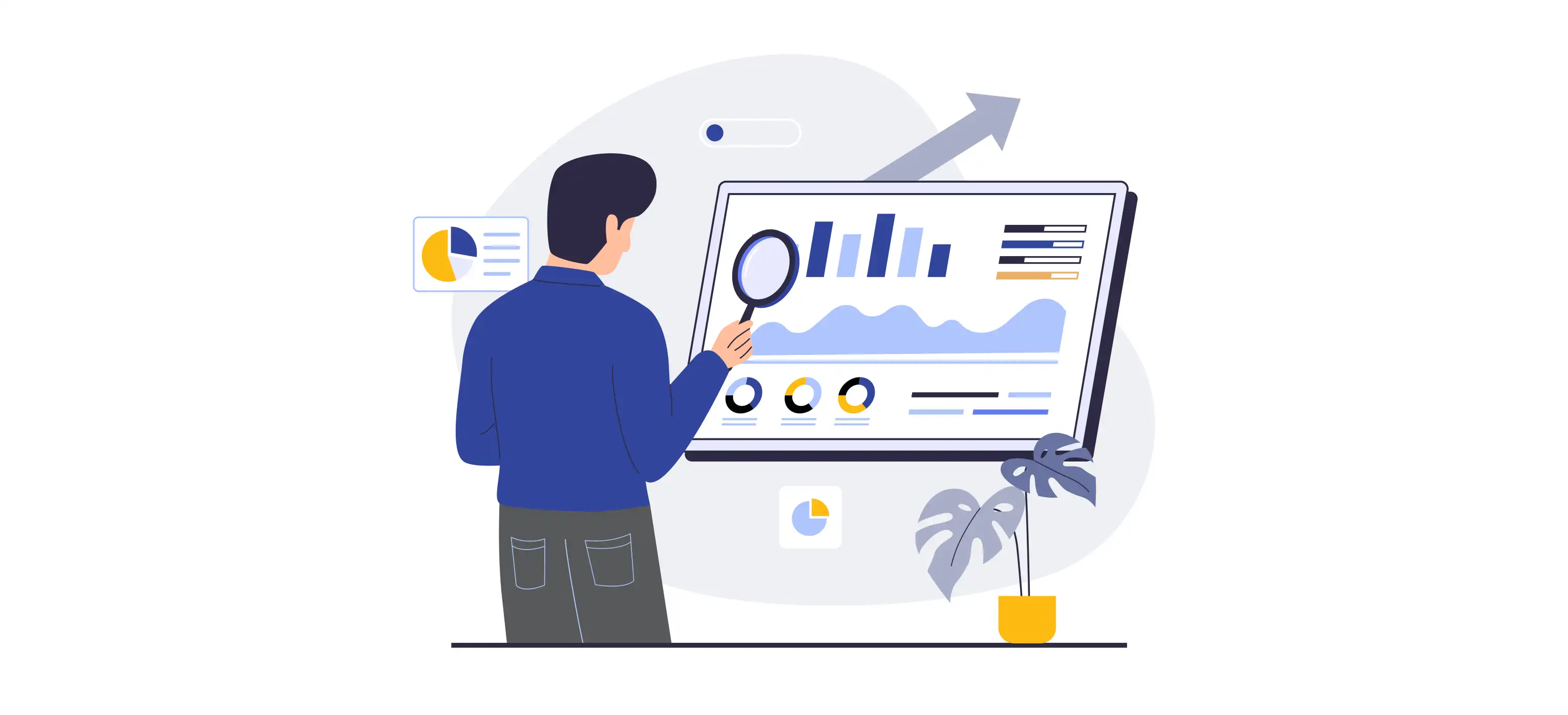
In today's data-driven world, the demand for skilled data analysts is skyrocketing across industries. From healthcare to finance, data analysis plays a crucial role in uncovering insights and driving informed decisions. Learning data analysis offers a multitude of benefits, including lucrative career opportunities, enhanced problem-solving skills, and the ability to make data-driven decisions with confidence. With data analysis skills in hand, individuals can unlock a world of opportunities and contribute meaningfully to their chosen field.
This blog will explore actionable strategies and resources to help individuals understand how to learn data analysis effectively.
Understanding the basics of data analysis is essential for anyone looking to navigate the vast world of data. At its core, data analysis involves examining raw data to uncover patterns, trends, and insights. For instance, imagine a retail store analyzing its sales data to identify which products are most popular among customers.
This process typically begins with descriptive statistics, which summarize and describe the main features of a dataset, such as mean, median, and mode. From there, individuals can delve into inferential statistics to make predictions or draw conclusions about a larger population based on sample data. Mastering these fundamental concepts lays a solid foundation for more advanced data analysis techniques.
To become proficient in data analysis, one must develop several key skills. These include statistical knowledge, proficiency in programming languages, and data visualization techniques.
1. Statistical KnowledgeStatistical knowledge forms the backbone of data analysis. Understanding statistical concepts enables individuals to accurately interpret data and draw meaningful conclusions. For example, knowing how to calculate measures of central tendency like the mean, median, and mode allows analysts to understand the distribution of data. Additionally, familiarity with hypothesis testing helps in making statistically valid inferences from data.
2. Proficiency in Programming LanguagesProficiency in programming languages such as Python and R is crucial for conducting data analysis efficiently. These languages offer powerful libraries and tools specifically designed for data manipulation and analysis. For instance, Python's pandas library provides functionalities for handling and analyzing large datasets, while R's ggplot2 package offers comprehensive capabilities for creating insightful visualizations.
3. Data Visualization TechniquesData visualization techniques involve presenting data in graphical form to facilitate easier understanding and interpretation. Examples include bar charts, scatter plots, and heatmaps. For instance, a bar chart can be used to compare sales performance across different regions, while a heatmap can visualize correlations between various factors in a dataset. Effective data visualization enhances the communication of insights derived from data analysis.
Read on: Top Analytics Skills To Become A Data Analyst
Accessing the right learning resources and tools is crucial for mastering data analysis. Whether through online courses, books, or interactive platforms, individuals can find various avenues to enhance their skills.
1. Online CoursesOnline courses offer structured learning experiences tailored to different skill levels. These courses often include video lectures, quizzes, and hands-on exercises to reinforce learning. Learners can choose from beginner to advanced courses covering topics such as statistical analysis, programming languages, and data visualization.
2. Books and TextbooksBooks and textbooks provide comprehensive insights into various aspects of data analysis. For beginners, titles like "Data Science for Beginners" by Andrew Park offer a gentle introduction to fundamental concepts. Advanced learners may benefit from specialized texts like "Python for Data Analysis" by Wes McKinney, which delve into practical applications of programming languages in data analysis.
3. Interactive Platforms and TutorialsInteractive platforms and tutorials offer a hands-on approach to learning data analysis. These platforms often provide real-world datasets and guided exercises to help learners apply theoretical concepts in practice. Additionally, tutorials offer step-by-step instructions for executing specific tasks, making them valuable resources for self-paced learning.
To excel in data analysis, individuals must establish a robust foundation upon which to build their skills. Here are key strategies for laying a solid groundwork:
By adhering to these principles, individuals can establish a strong foundation for success in the field of data analysis.
Also, check out: Best Data Analytics Tools
Engaging in practical applications and projects is vital for reinforcing data analysis skills. By working with real-world datasets and undertaking hands-on projects, individuals can apply theoretical knowledge to solve practical problems.
Examples of practical applications include analyzing customer behavior to optimize marketing strategies, predicting stock prices using historical data, and identifying patterns in healthcare data to improve patient outcomes. These projects not only enhance technical proficiency but also showcase practical experience, which is invaluable in the job market.
In conclusion, mastering data analysis opens doors to a world of opportunities in today's data-driven landscape. By understanding the basics, acquiring essential skills, and engaging in practical applications, individuals can become proficient data analysts. With perseverance, continuous learning, and effective problem-solving, anyone can overcome challenges and thrive in this dynamic field, contributing meaningfully to their chosen industry.
You may also like: Benefits of Using Power BI in Data Analytics
Here is the list of other major locations where Edoxi offers Data Analytics Certification Course
Data Analytics Course in Dubai | Data Analytics Course in London | Data Analytics Course in Amsterdam | Data Analytics Course in Qatar